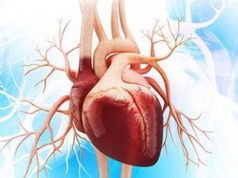Evidence-based guidelines address diagnosis, evaluation, and treatment, including early multidisciplinary care team involvement
FRIDAY, April 16, 2021 (HealthDay News) — In new guidelines issued by the American Thyroid Association and published in the March issue of Thyroid, recommendations are presented for the diagnosis, evaluation, and treatment of anaplastic thyroid cancer (ATC).
Keith C. Bible, M.D., Ph.D., from the Mayo Clinic in Rochester, Minnesota, and colleagues reviewed the relevant literature to develop guidelines relating to the diagnosis and management of ATC.
The guidelines include rapidly and definitively establishing a diagnosis, with early assessment of tumor mutations key to expanding therapeutic options. Early multidisciplinary involvement of surgeons, radiation and medical oncologists, endocrinologists, and palliative care teams should be coordinated to arrive at options for best care. To classify the disease as stage IVA, IVB, or IVC, staging with imaging is required; the extent of local invasion should also be assessed to assist with surgical decision-making. Patient counseling must be provided to establish individualized patient goals of care and should involve the patient and supportive individuals/family members. Surgical options should be evaluated, with complete resection and prompt transition to adjuvant definitive-intention therapy the primary goals for patients with stages IVA and IVB ATC. The limited benefit of surgery in IVC ATC should be tempered in consideration of other palliative approaches. Nonsurgical approaches should also be considered within the context of patient goals of care and willingness to accept anticipated toxicities. Hospice should be presented among care options given the historically dire prognosis of ATC, especially stage IVC.
“Despite significant advances in the diagnosis and treatment of patients with ATC, there remains a critical need for more effective therapies,” the authors write.
Copyright © 2021 HealthDay. All rights reserved.








